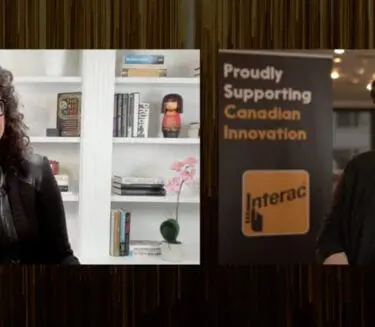When the Canadian government appointed an Advisory Committee on Open Banking in 2018, it launched industry leaders into a new conversation about control, data privacy and innovation.
The Committee conducted extensive research to review the merits of open banking in Canada. They found open banking could deliver meaningful benefits to Canadians by enabling them to do more with, and have greater control over, their financial information.
The challenge that now lies before open banking advocates is finding a way to implement this incredibly nuanced system. Implementing open banking in Canada hinges not only on consumer adoption, but on broad stakeholder participation and a trusted and secure network that facilitates confidence.
This type of initiative isn’t new to Interac. With a 36-year history of bringing together financial institutions, fintechs, acquirers, retailers, businesses and consumers, Interac has been at the centre of many of Canada’s financial services innovations.
That’s why Interac convened a roundtable to discuss what a Canadian-made open banking framework could look like. Here, Ilse Treurnicht, a member of the Government of Canada’s Advisory Committee on Open Banking, and 15 other industry leaders across finance, fintech, and government gathered to discuss how we can navigate this complex future.
The Government and fintech industry, in collaboration
Stakeholder submissions affirmed the Advisory Committee’s view: all participants in the ecosystem stand to benefit from open banking.
To accommodate all priorities, it’s not enough for open banking to promote innovation by allowing third-party financial service providers to enter the field. It also needs to meet public criteria around privacy, consumer control, utility, and benefit to consumers.
“The goal of any system should be to improve economic outcomes and consumer welfare through secure, efficient, consumer-permission data sharing.” — Ilse Treurnicht, Member, Open Banking Advisory Committee
How can we achieve this outcome in Canada? Ilse believes it will take a distinctly collaborative approach, where government and industry work together to come up with a unique, Canadian-built solution that is mutually beneficial for consumers and businesses.
Supporting consumer understanding
Discussions during the roundtable made it clear that for Canadians to actively engage with open banking, they first need to understand what it is. Then, they need to understand what it means to them, not theoretically, but in tangible, relatable ways.
The problem is, the concept of open banking (you may have seen it referred to as “consumer-directed finance” in the past) can be difficult to understand. And when some consumers don’t understand, they might be hesitant to trust — particularly when it comes to their personal data.
According to a recent survey of 2,000 Canadians conducted by Interac, 94 per cent of respondents want to feel in control of their financial information, and 75 per cent see several benefits to open banking. The projected ease of use and streamlined functionality was widely seen as being of value.
However, concern over data and privacy was weighted as three times more important than all other concerns combined.
Broadly speaking, that translates to a whole lot of people wanting more freedom but feeling unsure of the risks.
“The consumer doesn’t care about the backend or the name, but the consumer is very interested in the opportunities it provides to better manage their financial wellbeing.” — Ilse Treurnicht, Member, Open Banking Advisory Committee
Jacqueline Lu, co-founder of Helpful Places, has worked on leveraging data for innovation in both the private and public sectors. She agrees the challenge lies in consumer concerns around whether their data can be seen, how that data is being processed, and to what end. These are all excellent questions to ask (learn more about which questions consumers should ask in our conversation with Debbie Gamble and Amy Webb), and Jacqueline is adamant those people deserve accessible answers.
“[We need] to make that legible,” says Jacqueline. “As we build technical infrastructure and work on standards, how are we sewing this broad-based legibility into these digital systems? It’s not reasonable to ask consumers to make decisions about data processing if they don’t have the basic literacy to understand the transaction that’s being made.”
Indeed, consumers need access to plain language that tells them what this new technology means to them and their finances.
Gaining Trust
Intimately connected to the importance of understanding is the importance of trust, which Ilse maintains is the most essential factor when it comes to getting consumers on board.
Ilse explains that industry participants, including small businesses, must also understand the benefits to their participation in the system and that all participants will be treated fairly and equally. The government must also trust that an open banking system will meet certain public policy objectives around privacy, consumer control and benefit to consumers.
Applying the Principles of Open Banking
When the conversation of open banking comes up, it can be difficult to pinpoint exactly how vast its application is, and Ilse is quick to note the mandate for the Advisory Committee is precisely focused on a subset of banking data. But the principles of open banking and data portability can be applied far more broadly.
“In the financial sector and beyond, there’s a broad movement to move from the idea of ‘open banking’ to ‘open finance’, expanding into other sectors,” explains Ilse. “We see it playing out in the UK and Australia where they recently started applying their consumer data right to the energy sector.”
She acknowledges this is all happening during the time of payments modernization, privacy modernization, digital ID, and several other initiatives that will need to be brought together in a functional ecosystem with shared principles.
Data Mobility for Social Good
Erin Kim, Director of Product for TWG, thinks data mobility has tremendous potential to positively impact consumers’ personal lives, with applications in the private and public sectors, along with consumer products. Take a look at one particular project she worked on with Interac, and why she believes the principles of data mobility inherent to open banking could improve the healthcare system.
A “Minimum Viable Ecosystem”
With the large number of nuances and competing interests in the world of open banking, the roundtable participants agree that this is a game of collaboration.
“Sometimes it feels like open banking is a chess game between the banks and the fintechs and the aggregators,” says Ilse. “But it’s really about ensuring innovation that will position our financial services sector for success in a rapidly changing world.”
She suggests approaching the conversation with a cooperative mindset that will allow open banking to flourish, forging an innovative, scalable and uniquely Canadian path forward.
Interac calls this community a “minimum viable ecosystem”.
Only through engaging parties fully, and with meaningful input, can we create a system that will achieve a dual end, where consumers and the economy can both benefit from a new era.
In the words of Debbie Gamble, Chief Officer, Innovation Labs & New Ventures at Interac, “we at Interac are up to the challenge…of working with the ecosystem to figure out what is best for Canadians.”
We hope you’ll join us.
If you’re interested in learning more about how we are exploring open banking or have thoughts on establishing a minimum viable ecosystem in Canada, we encourage you to get in touch with us at innovation@interac.ca.
About the survey
Interac Corp. commissioned Navigator to conduct an online survey among 2,000 Canadian banking cardholders age 18 and over. The survey was in field from March 30 to April 1, 2020. The sample quotas were representative of the banking cardholder population in terms of age, gender and region; after fielding, the data was weighted to ensure the sample was also representative based on level of education.
Learn how the Innovation Partnerships team at Interac is working on open banking.





